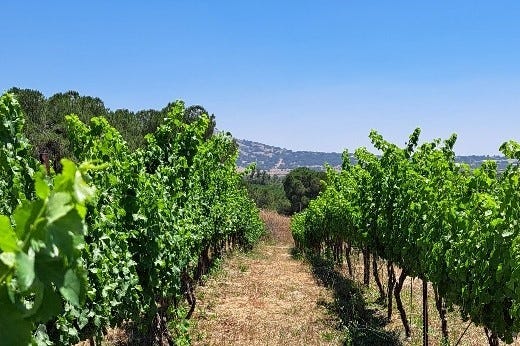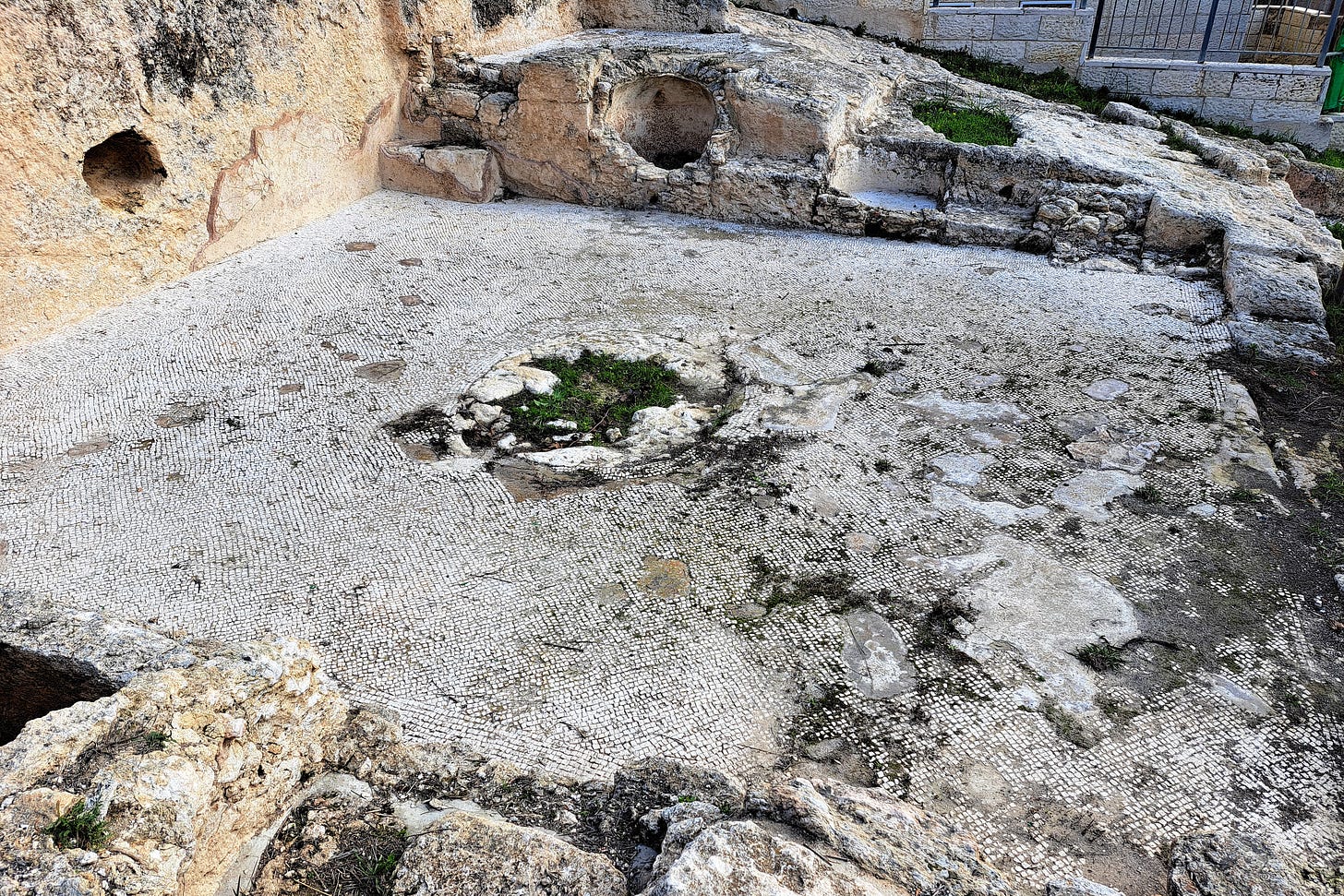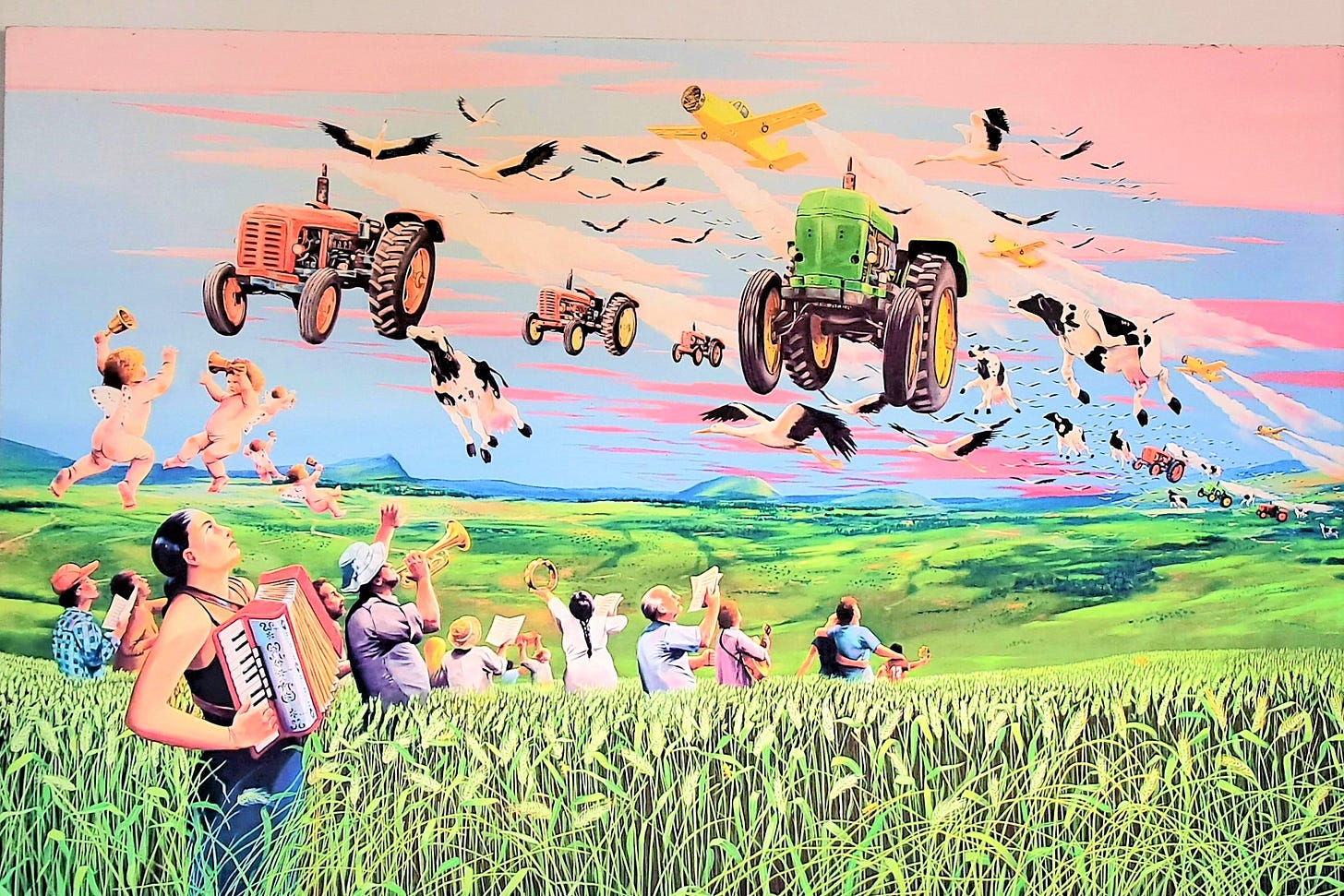The viniculture of Israel is as diverse as its culinary culture.
Sitting at the very heart of the ancient landscape and its heritage, the cultivation of grapes and the production of wine dates back to the biblical era, where it became the symbol of the Promised Land.
The grapes were one of the ‘first fruits’ of the indigenous species given to man by God. Highly significant and symbolic not only to the religious customs and traditions of the Israelites, the vines lured the deeper emotional and spiritual attachment to the topography and characteristic of the ancient landscape.
Wine, together with oil and grain made up the triad of the biblical economy, and became integral to the history and wealth of the region, known as the ‘cradle of civilization’. The Israelites cultivated the grapes from the landscape of Canaan and introduced a thriving industry in wine production, trading to Egypt around the early Bronze Age. With a low alcohol content and a flowing trade, wine soon became the staple drink of the region, in place of the dirty, contaminated water from the Nile. Superstition quickly came to surround wine drinking amongst the Pharaohs, from its red hue and resemblance to blood, however despite modest attitudes towards alcohol and inebriation within the Old Kingdom, a culture emerged for producing fine wines with a status of wealth and affluence, that allowed for a growing economy which lasted throughout Egypt’s Roman rule.
Wine making was initially a simple process, as the harvested grapes were crushed by bare feet in stone vats, releasing the juices and fermenting at the same time. The wine matured in the vats for a short period of time before being placed in larger ones to age, before drinking. Wine making became more sophisticated in the Roman era with wooden presses and clay amphorae.
Trading ceased with the Muslim conquest of the Ottoman Empire during the 7th Century BCE, when alcohol was forbidden under Islamic religious laws. The grapes used for wine, stayed on the vines to become table grapes, picked when plumper with softer skins, for a sweeter taste. Some were dried into raisins and those that were crushed or bruised, made into syrup and molasses. It wasn’t until the Middle Ages that wine production resumed in the Mediterranean, prospered throughout southern Europe and with the financial backing of Baron Edmond de Rothschild in the 1880’s, Israel’s wine industry was re-established in the Carmel winery, with the expertise of Bordeaux wine makers from the vineyards of Chateaux Lafite.
Biblical wines from the ancient land of Israel were produced from mixed vineyards of ‘table’ grape varietals, leaving the wine to be determined by style, place and strength, not by the specific grape. The fertile landscape and Mediterranean climate allowed for the prolific growth of wild varieties all over the country for the production of kosher wines, typically made sweeter from riper grapes and primarily drunk to celebrate religious rituals and blessings.
By the end of the 20th century and with a fast growing diversity in the culinary culture from French, Spanish and American immigrants, came a revolution in wine making. Specific grape varieties of Cabernet Sauvignon, Cabernet Franc, Carignan, Sauvignon Blanc and Colombard were planted for the beginning of a New World in quality red and white wines, which perfectly complemented the emerging art of pairing quality food with fine wines.
Extensive studies by researcher and winemaker Dr Shivi Drori are being carried out across the Judean landscape into the DNA of the indigenous grape varieties of the biblical era. Local vineyards in the hilly region with its volcanic, organic terra rossa have yielded fruit analysed as the ancient indigenous grapes of Marawi, Debouki and Bittuni, said to have been grown during the biblical era and produced the wines, once drunk by King David.
Racanati, is the first commercial winery in Israel to produce wines from the ancient biblical varieties. Wonderfully light and dry from the Mawari grape, fermented and aged on lees for up to 12 months, give fruity and herbaceous characteristics to the refreshing whites and delicate, floral, softly tannic reds are produced from the Bittuni vines. Indigenous to the locality of the ancient landscape, these are gastronomic wines, but not with a price tag to match.
Tel Shifon is a boutique winery, 915 meters above sea level and overlooking the stunning scenery of the Golan Heights, with a rich terrain, full of organic minerals suitable for trailing vines of Sauvignon Blanc and Cabernet Franc. It provides a stunning location and perfect climate to drink wine, paired with cheeses, breads, fruits and condiments, whilst Yosef the expert wine maker gives a guided tour of this vegan -friendly winery.
I am sure most of you are wondering how wines could not possibly be vegan, when made from grapes, however it is the fining process used to clarify and stabilize wines, made from animal products such as milk proteins or egg whites, that make many wines not suitable for the vegan drinker. Yosef uses a very gentle, natural approach of allowing the wines to ‘self fine’ by harvesting the grapes early and using a slow fermentation process to rid of any harsh tannins. If there is an unusually hot summer and there is a risk of the sugars beginning to ferment before the harvest, as occurred in 2020, polymust a potato protein is used to maintain the vegan stamp.
With ‘companion planting’ of perfumed roses at the head of each row of vines, this is an organic method of preventing the grapes from being diseased, Yosef and his team produce 20,000 bottles of deliciously blended, well crafted wines with an unforgettable label, borne out of a painting of local artist Moti Golan and his colourful, almost childlike innocence, vision of the landscape.
Wine is symbolic to religious culture and native to the ancient landscape. The detailed literature on wine in the scriptures is significant to the debate on the biblical grape varieties of Israel’s heritage, and bringing a new dimension to the industry. There are many established and boutique wineries lining the length and breadth of the country, bringing their locality, grape varieties and blends to a society where fine wines are becoming as palatable as the flavoursome food.
Our journey will continue… L’chaim!









